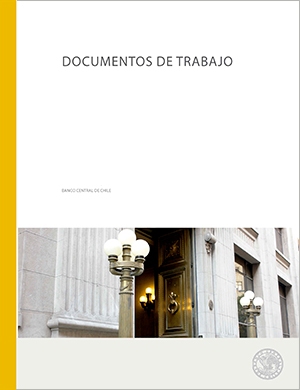Working Papers N° 787: Transiciones Laborales y la Tasa de Desempleo en Chile
Publications
Working Papers N° 787: Transiciones Laborales y la Tasa de Desempleo en Chile
Autor: Mario Marcel , Alberto Naudon
Description
In recent years, Chile’s unemployment rate has been low despite poor growth, a situation that has been seen as an anomaly. In this work, we analyze the recent behavior of the unemployment rate in light of the evolution of the labor market in the last decades. In particular, we review the evolution of transition probabilities between labor states and demographic changes that have characterized Chile in this period. Data examination of the last three decades shows that: (a) the unemployment rate shows sharp changes only when the job destruction flows increase sharply. This has been a characteristic of recessionary periods and not of the rather gradual decelerations like has been observed lately; (b) the importance in the labor force of those older than 55 years has increased significantly, while it has declined for those younger than 25, introducing a downward trend in the unemployment rate; and (c) the lower relative weight in the labor force of men between 25 and 54 years opens the door to a more “atypical” behavior of the aggregate unemployment rate. These elements suggest that the dissonance between the evolution of the rates of unemployment and growth is lower than it seems at first sight.
Working Papers N° 787: Transiciones Laborales y la Tasa de Desempleo en Chile
Boxes and graphics

